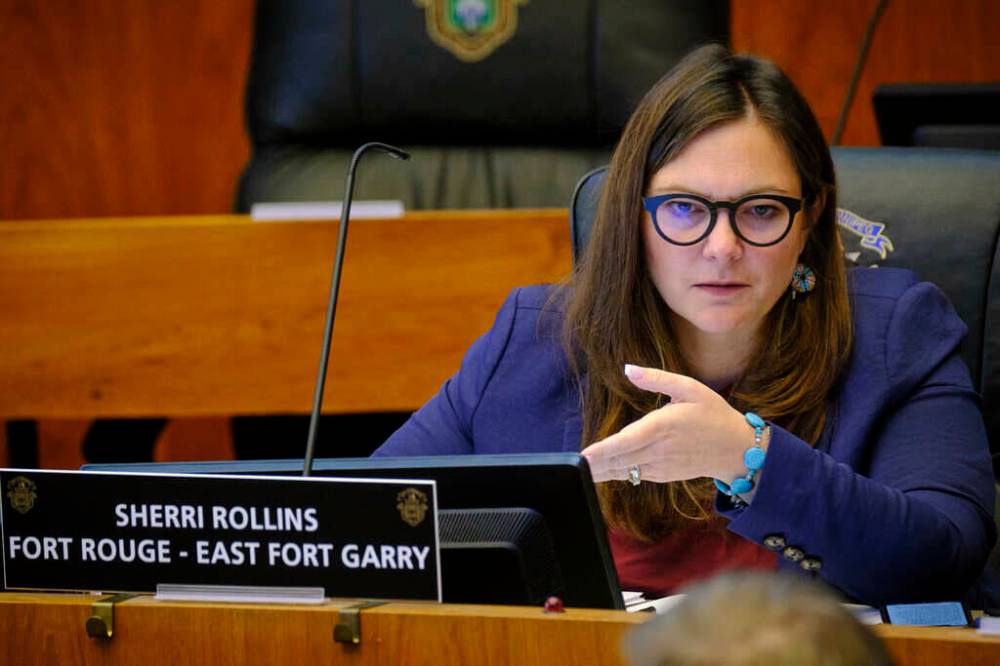B.C. tour offers insight into local harm reduction: Rollins
Advertisement
Read this article for free:
or
Already have an account? Log in here »
To continue reading, please subscribe:
Monthly Digital Subscription
$0 for the first 4 weeks*
- Enjoy unlimited reading on winnipegfreepress.com
- Read the E-Edition, our digital replica newspaper
- Access News Break, our award-winning app
- Play interactive puzzles
*No charge for 4 weeks then price increases to the regular rate of $19.00 plus GST every four weeks. Offer available to new and qualified returning subscribers only. Cancel any time.
Monthly Digital Subscription
$4.75/week*
- Enjoy unlimited reading on winnipegfreepress.com
- Read the E-Edition, our digital replica newspaper
- Access News Break, our award-winning app
- Play interactive puzzles
*Billed as $19 plus GST every four weeks. Cancel any time.
To continue reading, please subscribe:
Add Free Press access to your Brandon Sun subscription for only an additional
$1 for the first 4 weeks*
*Your next subscription payment will increase by $1.00 and you will be charged $16.99 plus GST for four weeks. After four weeks, your payment will increase to $23.99 plus GST every four weeks.
Read unlimited articles for free today:
or
Already have an account? Log in here »
Hey there, time traveller!
This article was published 07/02/2022 (1409 days ago), so information in it may no longer be current.
A local city councillor travelled to Vancouver last week, seeking ideas to reduce the number of lives lost through Winnipeg drug overdoses.
Between Wednesday and Sunday, Coun. Sherri Rollins toured a safe consumption site — where people can consume illegal drugs with medical supervision — and checked out other support programs meant to reduce the harms of drug use.
While she’s still lobbying for one of those hotly debated consumption sites to be set up in Winnipeg, Rollins also believes other harm reduction steps should be taken sooner.

“A harm reduction approach isn’t just the technical aspect of supervised consumption sites, it’s also the philosophy… and public supports that are meeting people where they’re at,” said Rollins.
For starters, she believes some supervised consumption services and managed alcohol programs could be offered by existing clinics and social service facilities, to get supports in place more efficiently.
“It doesn’t have to be a new bricks-and-mortar build. It can be part of existing facilities that we have in Winnipeg,” said Rollins.
She’d also like to see the province provide drug-testing strips to various facilities, which would allow clients to determine what’s in their drugs before they use them. For example, many such strips can detect small amounts of certain drugs that have been diluted in water.
The councillor noted not offering a safe consumption option, or these other harm reduction steps, hasn’t prevented people from using drugs and discarding needles in other, often public, local places.
“No one thinks that people aren’t using here (in Winnipeg). No one thinks it’s not happening in every transit shelter. It is an impossibility that it’s not happening in and around every shelter,” said Rollins.
The federal government has offered some support for safe consumption sites over the last few years. According to Health Canada’s website, the facilities: help save lives; connect people to social services and addictions treatment; reduce public drug use; lessen the spread of infectious diseases; and cut demand on emergency medical services.
The agency says sites across the country dealt with a combined 15,000 overdoses and drug-related medical emergencies between 2017 and 2019, with no fatalities.
Across Manitoba, roughly 370 drug-related deaths occurred in 2020, a number some expect will exceed 400 in 2021 (once final numbers are available).
So far, the provincial government has not supported a safe drug consumption site.
While non-profit agencies can apply directly for federal permission to create the sites without provincial approval, Rollins fears that would place a hefty financial burden on any group that did so.
“It’s not feasible without provincial funding (because) of the amount of clinical staff, the doctors and the nurses (required),” she said.
In Vancouver, Rollins visited the Insite supervised consumption site, which is funded through a provincial health agency. Its main floor offers safe drug supplies and an area where clients can use drugs under the supervision of health workers. The building’s upper floors include a detox centre, community programs and transitional housing, she said.
Ideally, Rollins still hopes to secure a similar fully equipped site in Winnipeg but stressed the smaller harm reduction steps she’s calling for are also desperately needed.
Over the last several years, multiple politicians and advocates have called on the province to clear the way for a supervised consumption site in Winnipeg but the Manitoba government has not taken steps to add one. At times, its members have expressed concern such sites could attract crime or may not be as effective as other efforts to combat addictions.
On Monday, Manitoba Mental Health and Community Wellness Minister Sarah Guillemard noted her government has invested in rapid access to addictions medicine clinics, sobering centres and many other supports to reduce the risk of drug overdose and assist those dealing with addictions.
“We are continuously evaluating and implementing cost-effective, safe and evidence-based harm reduction and addictions treatment programs and services, and are committed to a balanced approach across the four pillars of prevention, intervention, treatment and recovery,” Guillemard said in an emailed statement.
The statement added “all harm reduction initiatives” being used in other provinces are being analyzed by her department.
joyanne.pursaga@freepress.mb.ca
Twitter: @joyanne_pursaga

Born and raised in Winnipeg, Joyanne loves to tell the stories of this city, especially when politics is involved. Joyanne became the city hall reporter for the Winnipeg Free Press in early 2020.
Our newsroom depends on a growing audience of readers to power our journalism. If you are not a paid reader, please consider becoming a subscriber.
Our newsroom depends on its audience of readers to power our journalism. Thank you for your support.


